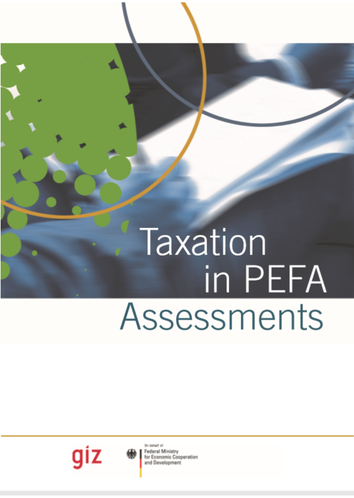
Taxation in PEFA Assessments
The strengthening of tax systems and support for developing countries’ efforts to increase their domestic revenues are receiving growing attention within development cooperation. The Public Expenditure and Financial Accountability (PEFA) Framework is an important source of information regarding public financial management in specific countries, including data on tax systems and practices.
This paper aims to analyse the tax-related information in PEFA assessments in order to: (a) systematise existing knowledge on the performance of the revenue side of PFM systems, and (b) identify lessons learned with a view to intensifying efforts to mobilise domestic resources, especially in the fight against tax evasion and tax avoidance.
The growing interest in tax matters poses challenges to aid effectiveness and donor coordination in the area. PEFA is sometimes used as benchmark for public financial management issues – mainly on the expenditure side of the budget – but has not similarly been used until now for domestic revenues issues.
An examination of PEFA indicators applied to the field of tax might therefore also help appraise and develop a comparable tax tool or adapt PEFA as a tool to assess tax administration performance. To this end the tax indicators of 26 countries’ PEFA assessments were analysed, equivalent to approximately 50% of those countries with publicly available reports. The analysis includes 11 sub-Saharan African countries, 4 Latin American countries and 6 from Eastern/Central Europe along with Central Asia and Bangladesh, India (Himachal Pradesh), Morocco, Nepal and Yemen.